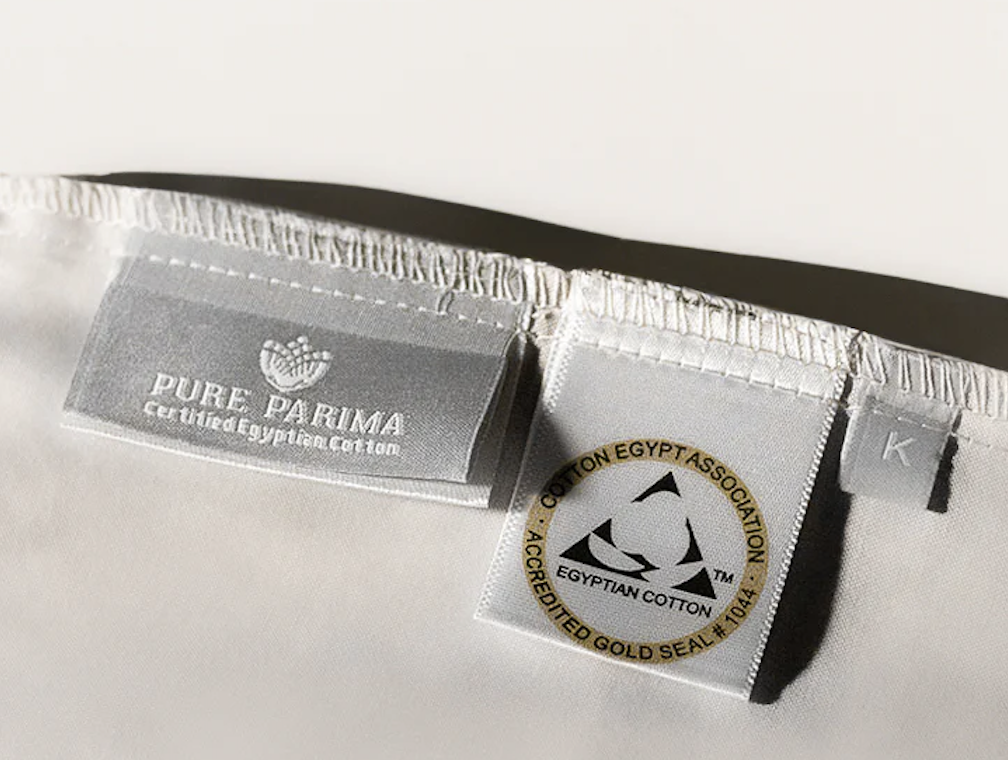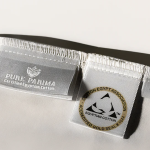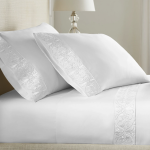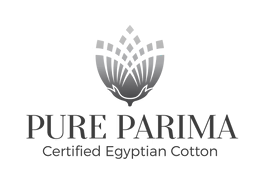Introduction to Allergy-Friendly Bed Sheets
The best bed sheets for allergies are Egyptian cotton, which offers hypoallergenic properties and breathability, reducing exposure to dust mites and other allergens. Additionally, bamboo and Tencel (lyocell) are excellent choices for their natural antibacterial and moisture-wicking abilities, but Egyptian cotton remains the top recommendation for its superior comfort and durability.
We spend an enormous chuck of our lives in bed - most of the time blissfully unaware (sleeping) - we want to make sure we are promoting a healthy sleeping environment. People suffering from sensitivity to allergens need to understand how their bed could be making their symptoms worse.
Dust, mites, dust mites, pollen, dander, pet hair: All these things pile up in our bedding. Selecting the best materials for allergens can significantly reduce these irritants,
Pure Parima is a top provider of allergy-friendly, high-quality Egyptian Cotton bedding. Check out our collections today!
Key Takeaways
- Learn about the best materials for allergy sufferers.
- Understand how different fills can impact allergies.
- Discover the benefits of Egyptian cotton for allergies.
- Tips for maintaining and caring for hypoallergenic sheets.
- How to choose the right bed sheets for your needs.
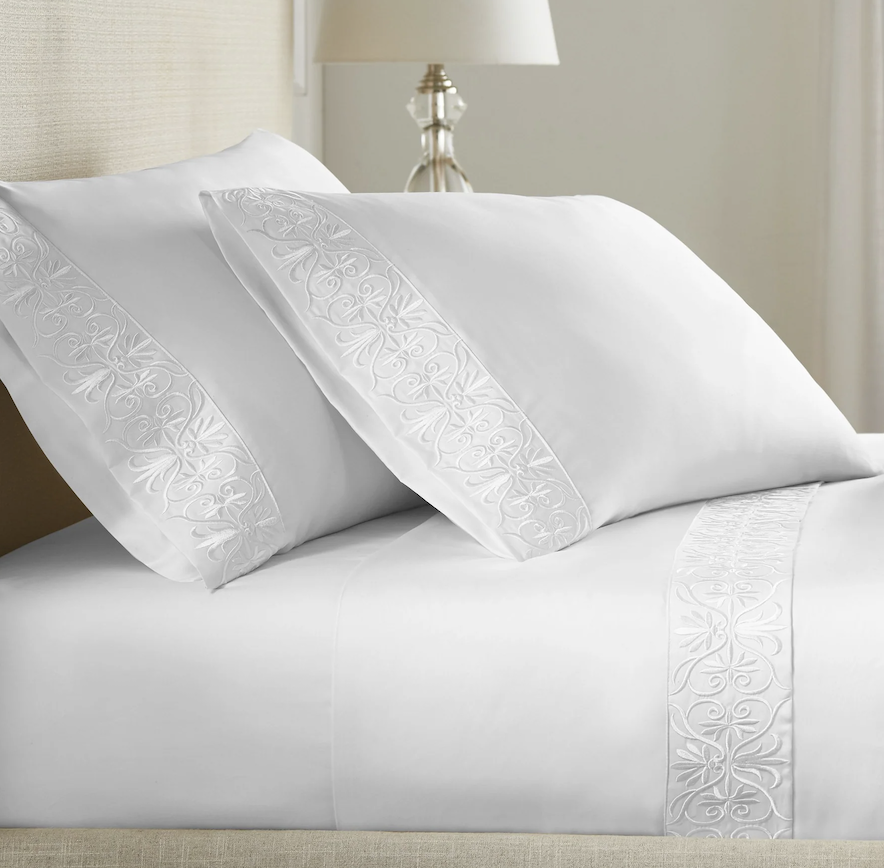
Why Material Matters for Allergy Sufferers
Hypoallergenic materials play a crucial role in reducing allergens and irritants in the bedroom.
Egyptian cotton, bamboo, and silk are excellent choices for those with allergies. These materials are breathable and resistant to dust mites and other allergens, promoting a cleaner and healthier sleep environment.
They also offer the added benefits of comfort and luxury, making them a popular choice for allergy-friendly bedding.
Egyptian Cotton Benefits
Egyptian cotton is a top choice for allergy sufferers due to its hypoallergenic properties.
Egyptian cotton's long fibers produce a smooth, durable fabric that resists allergens. Its natural breathability helps regulate temperature and moisture, creating a comfortable and clean sleeping environment.
Additionally, the luxurious feel of Egyptian cotton adds a touch of elegance to any bedroom.
Other Hypoallergenic Materials
Bamboo and silk are also excellent choices for hypoallergenic bedding.
Bamboo fabrics are naturally antibacterial and resistant to dust mites, making them ideal for sensitive skin and allergy sufferers.
Silk, known for its smooth texture and natural protein structure, repels common allergens.
Both materials offer unique benefits, such as moisture-wicking and temperature regulation, enhancing comfort and promoting better sleep.
The Role of Fill Power and Types in Allergy-Friendly Bedding
The fill of your bedding can significantly impact allergy symptoms.
Down and down-alternative fills offer distinct benefits, particularly for those with allergies.
High fill power provides better loft and comfort, crucial for a good night's sleep.
- High fill power for better loft and comfort.
- Down fills for natural insulation and warmth.
- Down alternatives for hypoallergenic benefits.
- Importance of proper fill for different climates.
- Maintenance tips for keeping fills allergy-free.
Best Materials for Sensitive Skin and Allergies in Bed Sheets
Choosing the right materials can make a world of difference for sensitive skin and allergy sufferers.
Organic cotton is known for its breathability and softness, making it a top choice. Bamboo offers natural antibacterial properties, while Tencel (lyocell) is excellent for moisture-wicking and dust mite resistance. Silk, with its hypoallergenic and skin-soothing qualities, is another luxurious option.
- Organic cotton for breathability and softness.
- Bamboo for natural antibacterial properties.
- Tencel (lyocell) for moisture-wicking and dust mite resistance.
- Silk for its hypoallergenic and skin-soothing qualities.
How to Maintain and Care for Hypoallergenic Bed Sheets
Washing and Drying Tips
To maintain the hypoallergenic properties of your bed sheets, wash them in hot water to kill dust mites and other allergens.
Use a mild detergent and avoid fabric softeners, which can irritate sensitive skin.
Dry your sheets on a high heat setting or in direct sunlight to eliminate any remaining allergens.
Storage Solutions
Store your hypoallergenic sheets in a breathable cotton bag to prevent moisture buildup, which can lead to mold and mildew.
Keep them in a cool, dry place to reduce the risk of allergens accumulating.
Regular Maintenance
Regularly wash your sheets and pillowcases at least once a week.
Rotate your sheets to ensure even wear and extend their lifespan.
Vacuum your mattress and use an allergen-proof cover to protect against dust mites and other allergens.
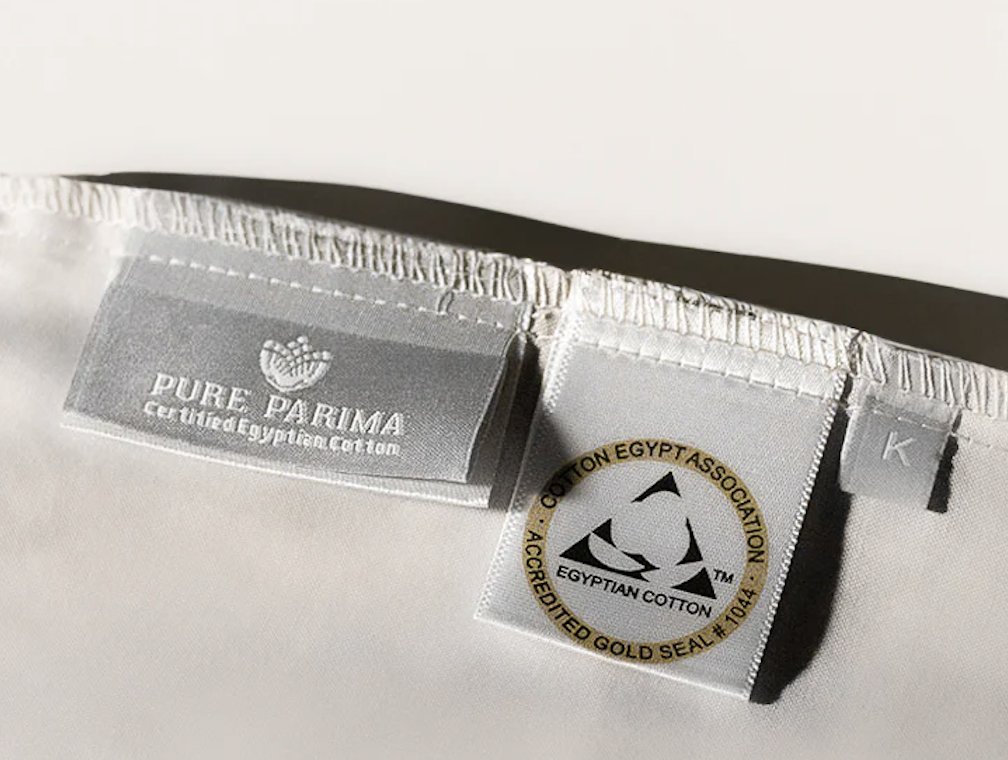
(Pure Parima’c Certified Egyptian Cotton Sheets)
The Science Behind Anti-allergen Properties
Anti-allergen properties in bed sheets stem from their ability to repel allergens and inhibit the growth of irritants.
Hypoallergenic materials such as Egyptian cotton, bamboo, and silk possess tightly woven fibers, creating a barrier against dust mites and other common allergens.
These materials are breathable, allowing air circulation that reduces moisture buildup. Moisture often provides a breeding ground for allergens, so keeping it at bay is crucial for a healthier sleep environment.
Moreover, certain materials offer natural antibacterial and antifungal properties.
Bamboo, for instance, contains bamboo kun, a natural antimicrobial agent that significantly reduces bacterial growth. This antimicrobial property helps keep the bedding fresher for longer, preventing the spread of bacteria that can exacerbate allergies.
Tencel (lyocell) is another material praised for its moisture-wicking capabilities. By drawing moisture away from the body and drying quickly, Tencel inhibits the growth of dust mites and mold, both of which thrive in moist environments.
Silk also contributes by being naturally resistant to dust mites and mold due to its smooth texture and protein structure.
The scientific benefits of these materials are clear:
- Tightly woven fibers block allergens.
- Breathability reduces moisture buildup.
- Natural antibacterial agents inhibit bacterial growth.
- Moisture-wicking properties prevent dust mites and mold.
- Silk's smooth texture and protein structure resist dust mites and mold.
Egyptian Cotton: The Best Material For Hypoallergenic Sheets?
Selecting the best bed sheets for allergies involves focusing on hypoallergenic materials and appropriate fills. Understanding the importance of materials like Egyptian cotton and the role of fill power can significantly enhance sleep quality by minimizing allergen exposure.
We believe that Egyptian Cotton is the superior material here. Its comfort, durability, allergen-resistant properties, and environmental sustainability place it above its competitors.
Pure Parima offers a range of high-quality Egyptian cotton bedding that meets these needs. Our products provide both luxury and hypoallergenic benefits. We stand by the quality of our collections and will happily answer any questions you may have. Shop online today!
